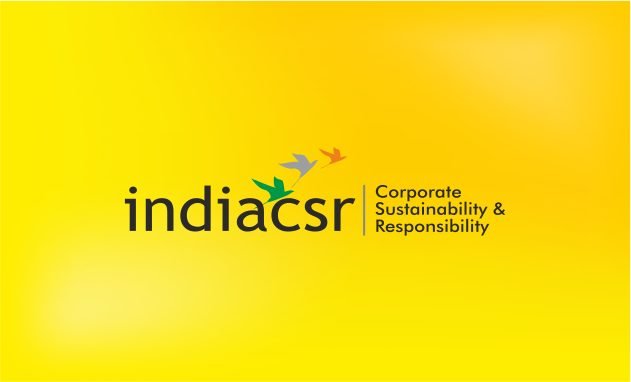MUMBAI: Maharashtra Village Social Transformation (MVSTF) and UNICEF Mumbai Field office today officially released a special outcome report on Jal Shakti Abhiyaan Campaign under Jal Jeevan Mission.
After Swachh Bharat Mission, the newly elected Government at Central has decided to launch time bound and coveted Jal Jeevan Mission to provide Functional and Potable Household Tap Water Connection (FHTC) to every rural HH household by 2024. Water availability at door step is going to be a crucial element in this mission.
With the formation of Jal Shakti Mantralaya at Central Level, the Ministry had launched the Jal Shakti Abhiyan (JSA) for creation, rejuvenation, augmentation of water bodies along with grey water management and other water harvesting measures for strengthening of water sources with a focus on mass movement on water conservation.
Department of Drinking Water and Sanitation under newly formed ministry had launched Jal Shakti Abhiyan, a time-bound campaign to increase and intensify the water conservation efforts in 1592 blocks spanning 256 districts across India.
It had five targeted interventions, targeted communication campaign, farmer/Community mobilization, and application of space technology for water resource management, and close monitoring and coordination. The focus of the campaign was on revival of traditional water conservation technologies, water reuse and recharge technologies, creation of rain water harvesting, watershed development and afforestation.
However, as per the JSA, it was expected that the campaign would be carried out in only 20 blocks in 8 districts in Maharashtra state as per the CGWB norms. However, Maharashtra state not only worked in these blocks but also scaled up this to entire state through its various departments, platforms and partners considering 16% of drought prone blocks of India are from Maharashtra and more than 90% single village water supply schemes are ground water based and many of them are situated in critical and over exploited watersheds.
The two-phased campaign started on July 8th 2019 to 15th September 2019 and the second phase commenced from 1st October 2019 and ended on 30th November 2019.
MVSTF with the technical support from UNICEF had rolled out JSA campaign across all 850 villages covering 450 Gram Panchayats of 96 blocks across 25 districts of Maharashtra. Out of 450 Gram Panchayats 300 Gram Panchayat participated in implementing JSA campaign.
During the JSA campaign period, predominantly water conservation works, construction of soak pits, and desilting besides intensive afforestation were implemented effectively in 366 VSTF GPs. Around 11, 000 water conservation interventions are completed which includes CB, CCT, CNB, LBS, CD, Trenches, and Gabian structures etc. About 860 sites are desilted, 230 rainwater harvesting structures have been created. As many as 16,217 measures have been done to store, recharge and reuse.
Sharing his views, on the report, Ramnath Subramaniam, Chief Executive Officer, MVSTF said, “Convergence of government scheme and program and public private partnership is helping us to make villages a water secure village. Outcome of the foundation’s work during Jal Shakti Abhiyan campaign period and throughout year is an effort to towards ensuring an affordable and equitable water supply and achieve the vision of Hon. Prime Minister to ensure ‘Har Ghar Nal Se Jal’ (Water at every households) by 2024.”
Sharing his views on the campaign, Dr. Sanjay Chahande, Principal Secretary Water supply and Sanitation Department, Govt. of Maharashtra, said. “The foundation is a unique initiative under CSR taken by the Government of Maharashtra and the key private sector partners. It has been deeply involved and has contributed in major way to the Jal Shakti Abhiyan in the State. I am sure MVSTF’s association for Jal Jeevan Mission would help us to ensure ‘Har Ghar Nal Se Jal’ goal in 1000 villages across the state.”
The total water storage capacity of these structures is 191.50 crore litres with expenditure of Rs. 22 crore benefitting 74,222 families covering 3,44684 people (124058 women and 106734 children). Total trees planted during JSA campaign were 14,08,414 across 24 districts across the state.
Sharing his views, on the report, Yusuf Kabir, Program Specialist of water supply, sanitation and hygiene UNICEF Maharashtra Office, said, “Household potable drinking water not only ensure improved public health but also improves HDIs. JAL Jeevan Mission and partnership between VSTF and UNICEF Maharashtra is aimed towards making household level functional potable water as every bodies business focusing on affordable and equitable water supply throughout the year with strong community resilience practices considering increasing climate variability.”
This report captures the planning, capacity building effort, partnership, convergence, processes followed, and interventions focusing on strengthening the drinking water sources and disseminate the concept of village water safety and security with informed community engagement and strengthening of PRI structures. The report also captures the case studies and good practices that can be replicated widely.
To receive a copy of report please write to editor@indiacsrnetwork.com with your name, designation, organisation.







